Hi there, fellow dog lover! I’m Dr. Candy Akers and today we’re going to talk about something that’s close to my heart – Barbet Eye Health. As a holistic veterinarian, I believe that understanding and caring for our furry friends’ health involves more than just knowing the basics. It’s about diving deep into breed-specific issues and providing the best possible care for our pets.
Barbets, with their expressive eyes, deserve special attention. Their eye structure is unique and knowing how to properly care for their eyes can make a huge difference in their overall health and happiness. From common eye conditions to tips on prevention, we’ll cover everything you need to know to ensure your Barbet’s peepers stay in top shape.
Whether you’re dealing with a Barbet eye condition or just want to learn more about Barbet eye care, you’re in the right place. We’ll discuss common eye diseases in Barbets, the role of nutrition and environment in eye health, and even how to maintain your Barbet’s eye health at home. So, let’s get started on this journey to better Barbet eye health. Remember, our goal is to help you become the best pet parent you can be!
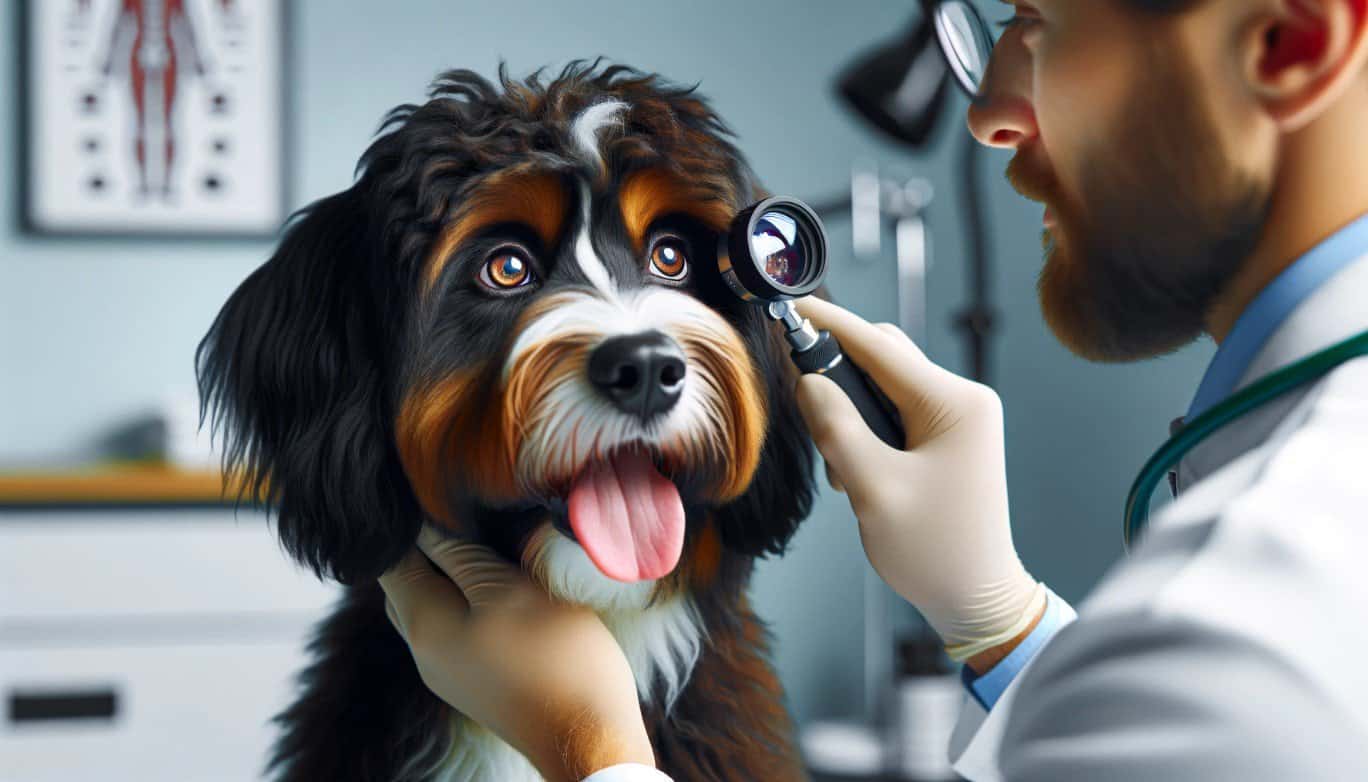
Understanding Barbet Specific Eye Structure
As a dog parent, understanding the unique eye structure of your Barbet can significantly help in maintaining their overall eye health. Barbets have a distinctive set of peepers that are not just captivating but also an essential aspect of their health and well-being.
Barbets, often known for their expressive eyes, have round and wide-set eyes that are typically dark brown. Their eyes are surrounded by thick, curly hair that often falls over the eyes. This characteristic trait, while endearing, can sometimes lead to eye issues if not properly managed.
These dogs have a relatively deep-set eye structure which provides a certain degree of protection. However, the deep-set nature can also make it slightly more challenging to spot early signs of eye conditions. Hence, it’s crucial to have regular check-ups with a vet to ensure optimal eye health.
Barbets’ eyes have a sturdy and functional third eyelid, also known as the nictitating membrane. This membrane serves as an additional protective layer for the eye, preventing dust and debris from causing irritation. However, it can also be prone to certain conditions such as Cherry Eye, where the gland in the third eyelid prolapses, causing a red, swollen mass in the corner of the eye.
The breed’s eyelashes are another noteworthy feature. Barbets often have long, thick eyelashes that add to their charm but can sometimes cause problems. For instance, distichiasis, a condition where an extra row of eyelashes grows on the eyelid and rubs against the cornea, is a common Barbet Eye Condition.
Understanding these distinctive features of a Barbet’s eye structure can help you as a pet owner to be more vigilant about potential eye issues. Regular grooming to keep the hair around the eyes trimmed and clean, combined with routine eye checks, can significantly contribute to your Barbet’s eye health.
Remember, when it comes to your furry friend’s health, early detection and prevention are always better than cure. Stay informed, stay vigilant, and ensure your Barbet enjoys the world through healthy, sparkling eyes.
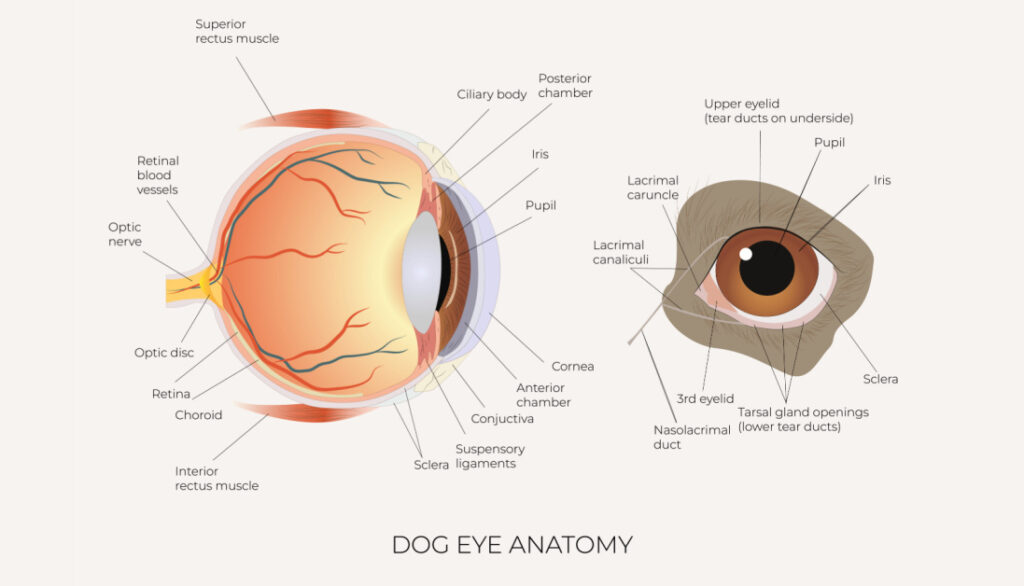
Common Eye Issues In Barbet
As a veterinarian, I’ve had the opportunity to work with many breeds of dogs, and one that holds a special place in my heart is the Barbet. This breed is known for its loving and friendly nature, but as a dog parent, it’s essential to understand the potential health issues your Barbet may face, particularly in terms of Barbet Eye Health.
The eyes of the Barbet are one of its most expressive features, but they are also prone to certain conditions. Here are a few common eye problems that you may encounter:
- Entropion: This is a condition in which the eyelid rolls inward, causing the eyelashes to rub against the eye surface. It’s quite uncomfortable and can lead to corneal ulcers if left untreated.
- Ectropion: In contrast to entropion, ectropion is when the eyelid rolls outward, exposing the inner eyelid. This condition can lead to dry eyes and infections.
- Progressive Retinal Atrophy (PRA): This is a degenerative eye disorder that eventually leads to blindness. It’s a hereditary condition, so it’s crucial to check your Barbet’s breeding history.
- Cataracts: Just like in humans, Barbets can develop cataracts, leading to cloudy vision and potentially blindness if left untreated.
While these conditions may sound alarming, remember that early detection is the key to successful treatment. Regular check-ups and being attentive to changes in your Barbet’s eyes can make a significant difference in their eye health. For instance, if you notice excessive tearing, redness, cloudiness, or your Barbet is constantly rubbing their eyes, it’s a good idea to consult your vet immediately.
As we navigate through the journey of Barbet Eye Health, it’s essential to remember that your Barbet is a part of your family. Their health and well-being are just as important as any other member of your household. So, keep an eye out for any changes, and let’s ensure our four-legged friends live a healthy and happy life.
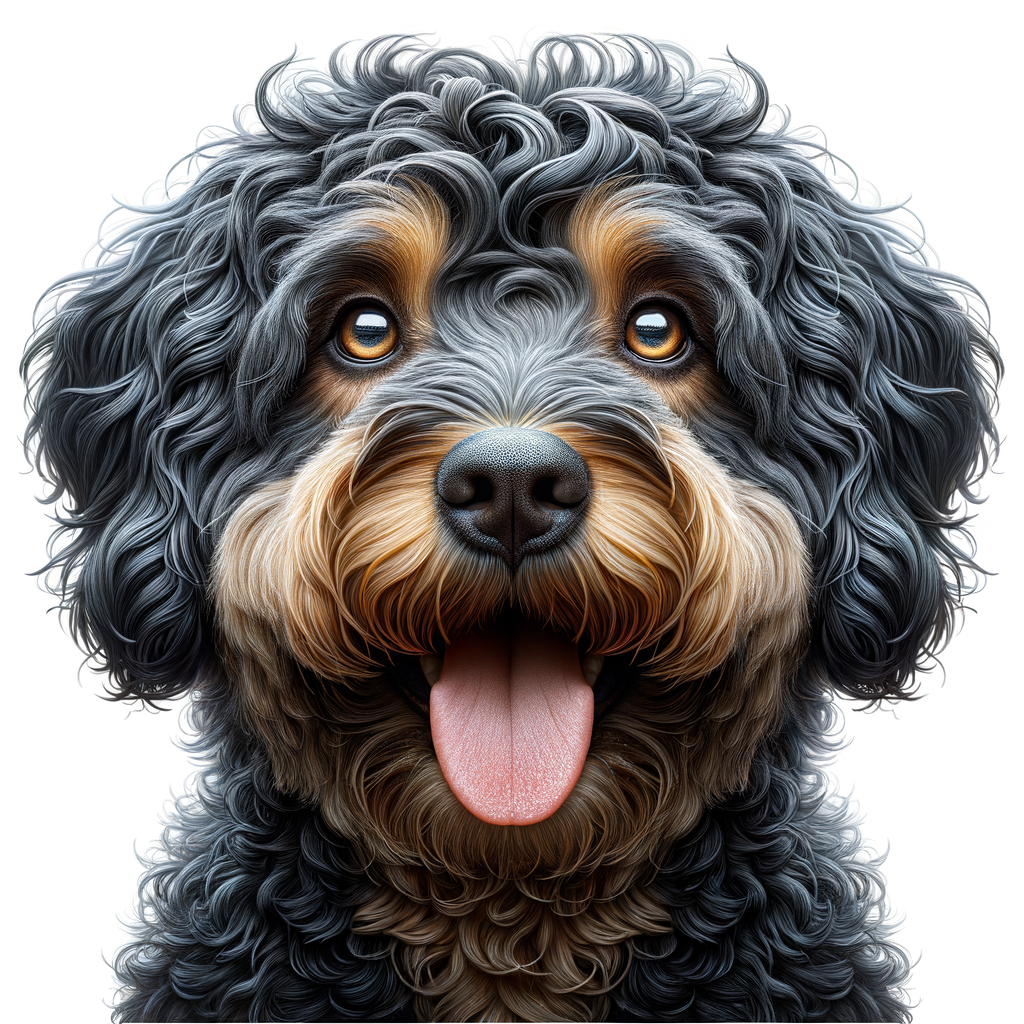
Prevention of Eye Problems
Ensuring your Barbet gets the right nutrients for optimal eye health is essential for maintaining clear vision and preventing age-related issues. Natural, nutrient-rich foods and supplements can play a key role in supporting their eyesight. From vitamin A-packed freeze-dried liver treats to antioxidant-rich blueberries and targeted supplements like Eyeplex by Standard Process, there are several ways to nourish your dog’s eyes. In this section, we’ll explore how these powerful ingredients contribute to long-term vision health and overall well-being.
Eyeplex by Standard Process
Eyeplex by Standard Process is a specialized supplement designed to support your Barbet’s eye health with a blend of essential nutrients. Formulated with key vitamins, minerals, and antioxidants, Eyeplex helps protect against oxidative stress, supports retinal function, and promotes overall vision health. Ingredients like vitamin A, vitamin C, and zinc contribute to maintaining strong eyesight, while whole food ingredients provide additional phytonutrients for cellular protection. Adding Eyeplex to your Barbet’s diet can be especially beneficial for aging dogs or breeds prone to eye conditions, offering targeted nutritional support to keep their vision sharp and healthy for years to come.
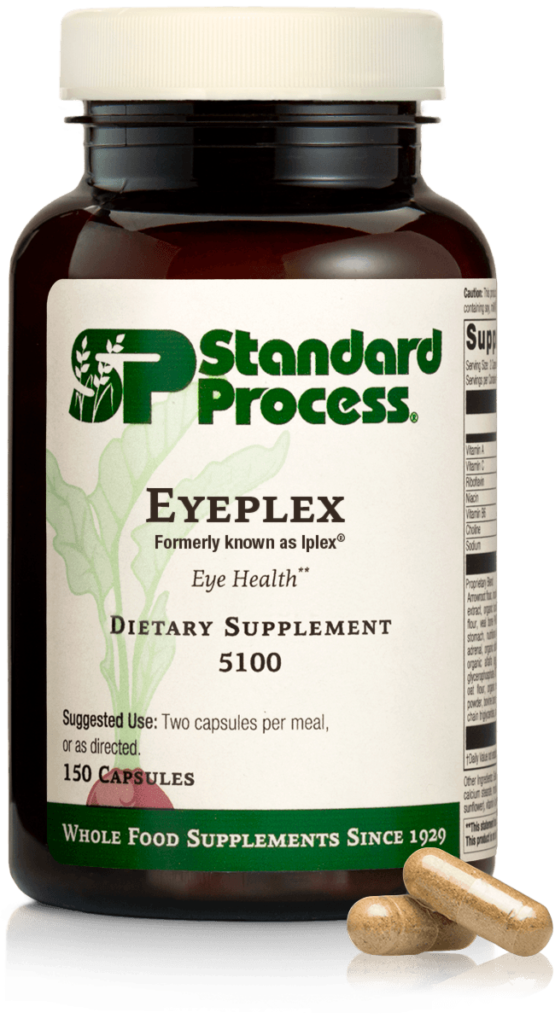
Freeze-Dried Blueberries
Freeze-dried blueberries are a powerhouse of antioxidants that can help protect your Barbet’s eyes from oxidative stress and age-related damage. Rich in vitamins C and E, as well as anthocyanins, these tiny but mighty berries help combat free radicals that can contribute to eye diseases like cataracts and macular degeneration. Incorporating freeze-dried blueberries into your dog’s diet provides a natural and delicious way to support retinal health, reduce inflammation, and promote overall vision longevity. Plus, they’re a low-calorie, dog-friendly treat that makes a great addition to a balanced diet for long-term eye health.
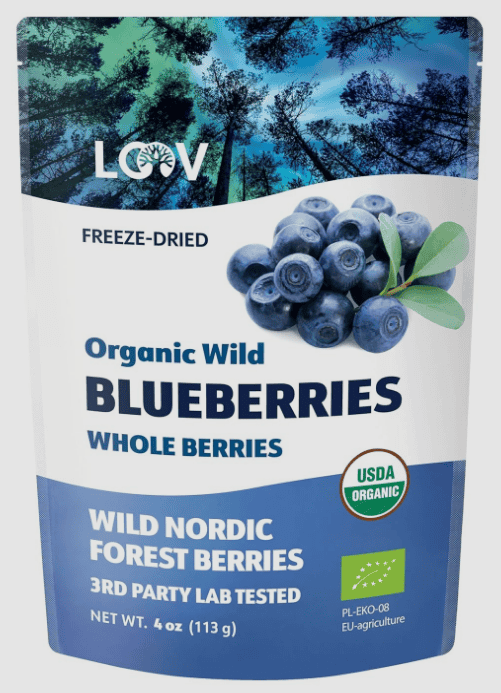
Freeze-Dried Liver
Freeze-dried liver treats are an excellent natural source of vitamin A, an essential nutrient for your Barbet’s eye health. Vitamin A plays a crucial role in maintaining good vision, especially in low-light conditions, while also supporting overall immune function and skin health. Since liver is rich in bioavailable vitamin A, incorporating freeze-dried liver treats into your dog’s diet provides a convenient and nutritious way to promote optimal eye function. Just be sure to feed them in moderation, as excessive vitamin A can lead to toxicity. Adding these nutrient-packed treats to your pup’s routine is a simple, tasty way to support their long-term vision and well-being!

By prioritizing your Barbet’s eye health through a balanced diet and nutritional supplements, you can help prevent many common eye issues. These simple steps can go a long way in ensuring your pup’s eyes stay healthy and clear for years to come.
Environmental hygiene is a crucial factor when it comes to maintaining the eye health of your Barbet. By creating a clean and safe environment, you can significantly reduce the risk of eye problems.
Indoor Air Quality
Indoor air quality is one of the top environmental factors that can impact your Barbet Eye Health. Poor air quality can lead to eye irritations or exacerbate existing conditions. Here are some tips to maintain good indoor air quality:
- Ensure proper ventilation: Keep windows open whenever possible to allow fresh air in. Use exhaust fans in the kitchen and bathroom to remove contaminants.
- Reduce dust: Regularly clean your home to reduce dust levels. Use a damp cloth for dusting to prevent particles from becoming airborne.
- Use air purifiers: These devices can help remove allergens and other pollutants from the air.
Sprays, Diffusers, Candles, Incense
While sprays, diffusers, candles, and incense can make your home smell good, they can also irritate your Barbet’s eyes. Many of these products contain chemicals that can cause eye irritation or allergies. Here’s what you can do:
- Choose natural products: Opt for products made with natural ingredients. Avoid those with synthetic fragrances.
- Use these products sparingly: Only use sprays, diffusers, candles, and incense occasionally and in well-ventilated areas.
- Monitor your Barbet: If you notice your dog rubbing its eyes or showing signs of discomfort after you’ve used these products, it might be best to stop using them.
Remember, your Barbet’s eyes are sensitive, and what might seem harmless to you could cause discomfort or harm to them. By maintaining a clean and safe environment, you can help ensure your Barbet’s eyes stay healthy. Always keep an eye out for any signs of discomfort or changes in your Barbet’s eyes, and consult with a vet if you have any concerns about your dog’s eye health.
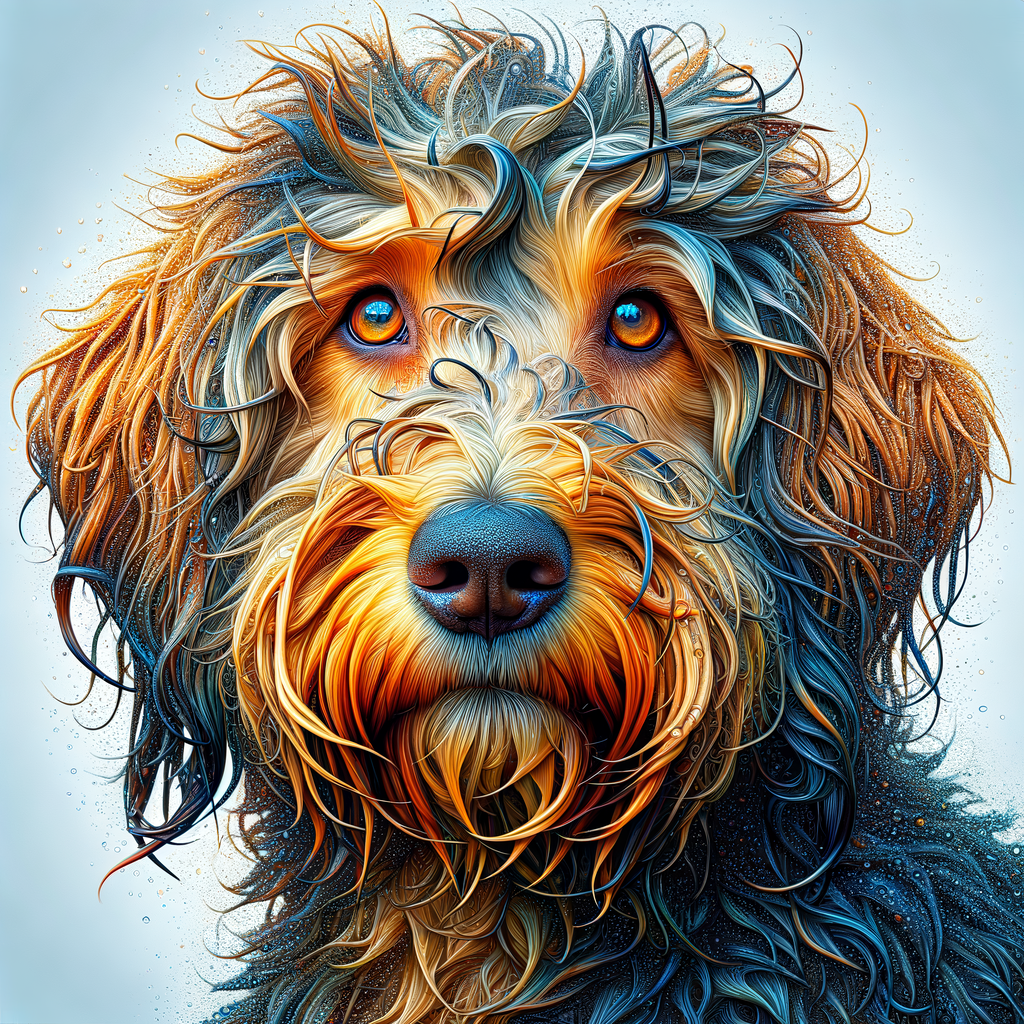
Routine Barbet Eye Care & Maintenance
Daily & Weekly Care & Maintenance
For optimal Barbet Eye Health, it’s crucial to incorporate a routine of daily and weekly care. Just like us, our furry companions need regular checks to maintain their eye health. This goes beyond just looking into their eyes – it’s about knowing the signs and taking action when necessary.
Start by examining your Barbet’s eyes daily. Look for any signs of redness, swelling, or discharge. If you notice any of these symptoms, it’s best to consult with a Barbet Eye Specialist immediately. Don’t forget to check for any cloudiness or changes in eye color, as these could indicate a serious Barbet Eye Condition.
Furthermore, cleaning your Barbet’s eyes should be part of your weekly routine. Use a vet-approved eye cleaning solution and a soft cloth or cotton ball to gently wipe around the eyes, being careful not to touch the eyeball itself. This will help prevent any buildup of debris or bacteria that could lead to an eye infection.
Monitor Hair Length, Nail Length, Bath Frequency
Another essential aspect of maintaining your Barbet’s eye health is monitoring their hair length. Barbets are known for their curly, dense coats, and if the hair around their eyes grows too long, it can cause irritation and even lead to eye problems. Regular trimming of the hair around the eyes can help prevent this.
In the same vein, keeping your Barbet’s nails trimmed is also important. Overgrown nails can cause your dog discomfort and can lead to an altered gait, which can put extra pressure on the eyes. Regular nail trims, usually every 3-4 weeks, are recommended.
Lastly, bath frequency also plays a role in eye health. Regular baths can help keep your Barbet’s coat and skin clean and free from potential irritants. However, it’s important to avoid getting soap or shampoo in your dog’s eyes as this can cause irritation. Always use tear-free dog shampoo and take care to rinse thoroughly.
Remember, maintaining your Barbet’s eye health is not a one-time task but a continuous process. By incorporating these simple steps into your routine, you can ensure that your furry friend’s eyes stay healthy and clear for years to come. And always consult with a veterinarian or a Barbet Eye Specialist if you have any concerns about your dog’s eye health.
Frequently Asked Questions
What are common eye conditions in Barbets? Barbets can be prone to various eye conditions such as cataracts, progressive retinal atrophy (PRA), cherry eye, and entropion.
How can I prevent eye problems in my Barbet? Regular veterinary check-ups, proper grooming, and maintaining good hygiene can help prevent eye problems in Barbets. It is also important to avoid exposing them to irritants or foreign objects.
What are the symptoms of eye issues in Barbets? Common symptoms of eye problems in Barbets include redness, excessive tearing, discharge, squinting, cloudiness, bump or swelling on the eyelid, and changes in vision.
Can eye conditions in Barbets be treated? Many eye conditions in Barbets can be treated, depending on the specific condition. Treatment options may include medications, surgery, or other interventions recommended by a veterinarian.
When should I seek veterinary care for my Barbet’s eye problem? If you notice any signs of eye discomfort or abnormality in your Barbet, it is recommended to seek veterinary care promptly. Early detection and treatment can help prevent further complications.
